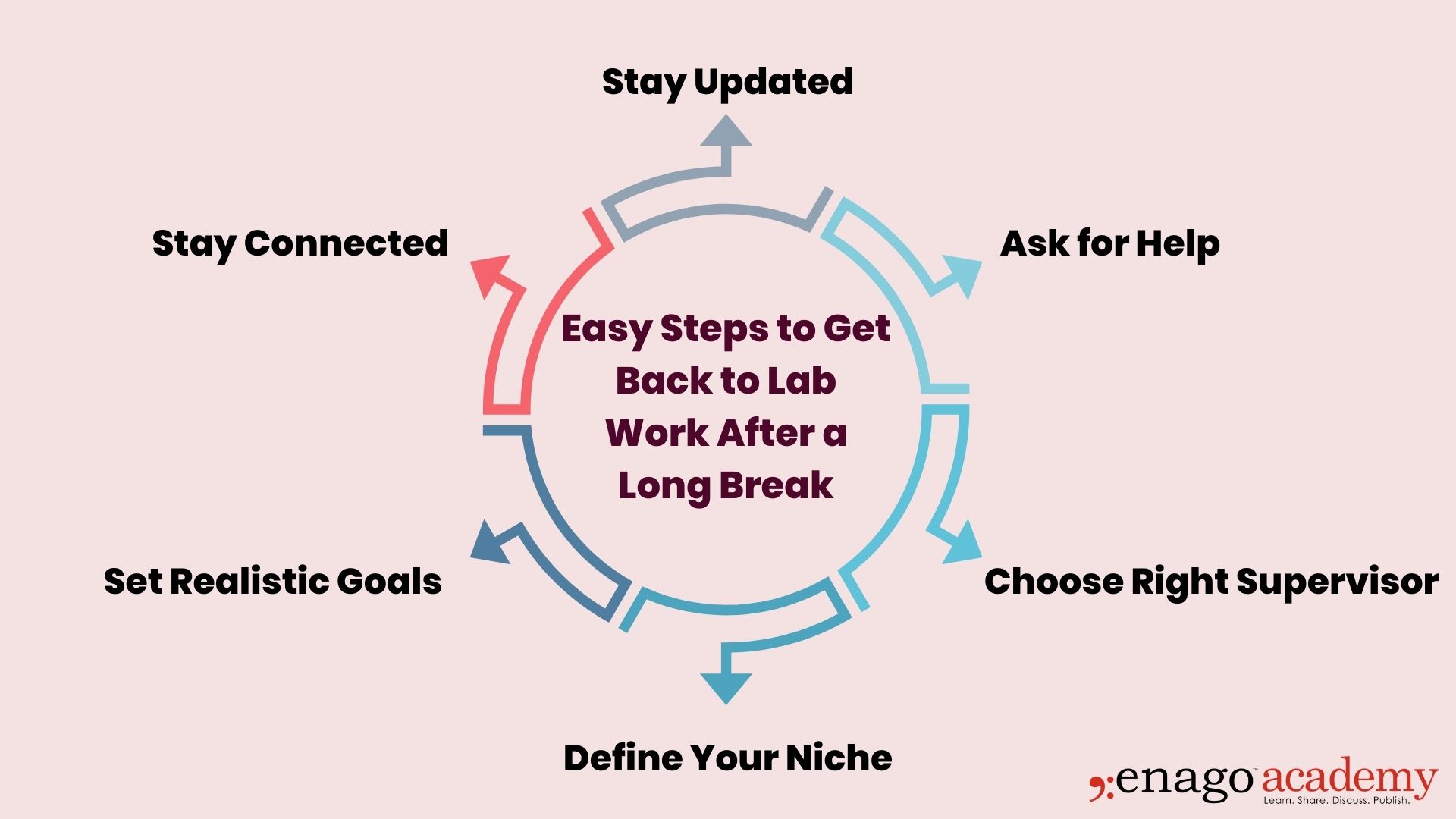6 Tips to Get Back to Lab Work After a Long Career Break

“I just can’t think straight. It’s been long since I last stepped in to a lab.” You certainly aren’t alone if you had this crippling self-doubt while getting back to lab work after a long break.
Be it a family emergency, a desire to try out something new, the birth of a child, or just a break from the routine: the reasons to take a substantial break from research could be any. However, it’s never too late to get back to it with equal or even higher zest. It of course wouldn’t be same for all. Some might just pick up from where they left off, and others would decide to explore a new approach or a completely new field of work. This article guides researchers to get back to research after a break with same resilience with which they pursued it earlier.
What are the Challenges Researchers Face Whilst Returning Back to Work?
Returning to lab work after a substantial break can bring along several challenges. Here are some known constraints faced by researchers when they try to get back to lab work after an extended break.
- Lack of confidence: You are likely to experience much lower confidence than it would have been in work constantly.
- Need of upskilling oneself: Due to the long break away from work, it seldom is difficult to decipher the gaps and newer advances in the field.
- Worry over being a fit in the new workforce: There is a possibility that due to a longer gap, younger researchers may have also joined your organization and may have advanced knowledge in technology.
6 Things to Consider While Getting Back to Lab Work After a Long Break

Stay Updated
Your passion for science and research should keep your inquisitiveness alive even when you are on a break and away from work. Take necessary effort to stay updated with new advances in your field of study by subscribing to journal, association and society newsletters, join academic social networking sites such as ResearchGate, Academia.edu, etc. Get access to online resources, including open access articles, podcasts, and science news services.
Stay Connected
Returning to work after break will be easier not only if you have been in touch with the developments in your field, but also with your colleagues. Any form of communication and connection with your colleagues who are still engaged in research, every few months will help you keep abreast of topical research and latest developments in your field. Furthermore, it will also help in acquiring knowledge from new laboratory techniques to latest trends for writing an academic CV.
Set Realistic Goals
A career in research demands time and energy. Thus, do not get intimidated by your colleagues. They may have been working ceaselessly whilst you were away from research work. It may take a while to get the wheel running; however, a positive attitude and realistic goals will help in getting back on track.
Choose the Right Supervisor
Choosing the right supervisor for your research is a pivotal aspect in making a successful return to research. A mentor is someone who not only supports you morally, but also helps by providing laboratory space and access to other facilities. Additionally, they also help in planning the steps towards research completion.
Define Your Niche
One of the most critical decisions is choosing the right research question in your domain. It could either mean returning to the research you left earlier or starting a new one. Irrespective of its nature, carving out your research niche is imperative to resume work without inhibitions.
Ask for Help
Be it a basic theory or an advanced technique, it is imperative to avoid ambiguity. Asking for help from your colleagues is better than jeopardizing the task assigned to you. Do not shy away from ask for help from your colleagues at work; it also enables a better synergy in the team.
Do you plan on resuming your research work after a break? Have you known anyone who did? Or have you been wanting to take a break but were afraid of how to get back? Let us know in the comments section below!









